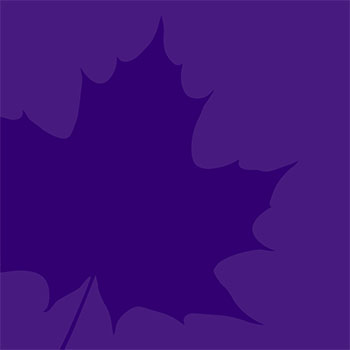We use cookies on this site to enhance your experience.
By selecting “Accept” and continuing to use this website, you consent to the use of cookies.

You will need to apply for a study permit if you are not a Canadian citizen or a Permanent Resident. You may also need a Temporary Resident Visa (TRV or visitor visa) or an Electronic Travel Authorization (eTA) to travel to Canada. If so, this will be issued as part of your study permit application.
The eTA or TRV will be documents that allow you to enter Canada. The study permit will allow you to stay in Canada and study.
The response to the COVID-19 pandemic has resulted in the Government of Canada making changes to the policies and processes for study permits. Be sure to review the information from the Government of Canada regularly to stay up to date.
Review a list of common documents required for study permit applications. You can also answer the questions in the eligibility survey to determine documents that you will need specific to you.
Once you have all your documents, you can apply for your study permit. Be sure to apply for your study permit before you travel to Canada.
When you apply for your study permit, you will also need to provide:
Learn more about the eligibility requirements for a study permit and your responsibilities while studying in Canada.
Biometrics (fingerprints and a photo) are now required when you apply for a study permit if you are from Europe, the Middle East or Africa.
If you have submitted biometrics within the last 10 years you will not need to submit them again. If you have not submitted biometrics to IRCC before you will be required to pay an extra $85 CAD for the procedure and submit it as part of your application. Learn more about biometrics.
To study in Canada, you must be enrolled in a Designated Learning Institution. A Designated Learning Institution is a school approved by a provincial or territorial government to host international students. Wilfrid Laurier University is a Designated Learning Institution and, when required, our Designated Learning Institution number (DLI#) is O19395164307. Note: The DLI# starts with the letter O and not the number zero.
Be sure to go over your documents when you receive them to make sure the information is correct. If there are any errors in your personal information, they will show up in your immigration documents and you will need to submit a request for an amendment to these documents when you arrive.
If you need to update your study permit application because your contact information has changed, you must contact the Government of Canada.
If you are 17 or under, you will need to provide additional documents as a minor studying in Canada. As well, your parents may need to fill out a Custodian Declaration (IMM 5646) form.
After you have submitted your application, if you need to give your biometrics you will receive a biometrics invitation letter from the Government of Canada. You will then make an appointment to get your biometrics taken and results will be submitted to the IRCC afterward.
Processing times for study applications will vary by country, but you can check the processing times online. If you are required to provide biometrics, the time you need to submit them is not included in the processing time.
Remember to check your MyCIC account periodically as this is where the IRCC will contact you if they require anything further to continue processing your application.
Once your application has been approved you will receive a Letter of Introduction. This is not your study permit. You will show this letter to the CBSA officer when you arrive at the Port of Entry and your study permit will be printed for you there. Make sure to look over your study permit for errors as soon as possible.
If you are from a country that requires an eTA, your letter of introduction will include information about your eTA and be linked to your passport.
If you are from a country that requires a visa, you will be given information on where to send your passport for the visa to be affixed into it.
For more detailed information on the process of applying for your study permit you can visit the IRCC website.